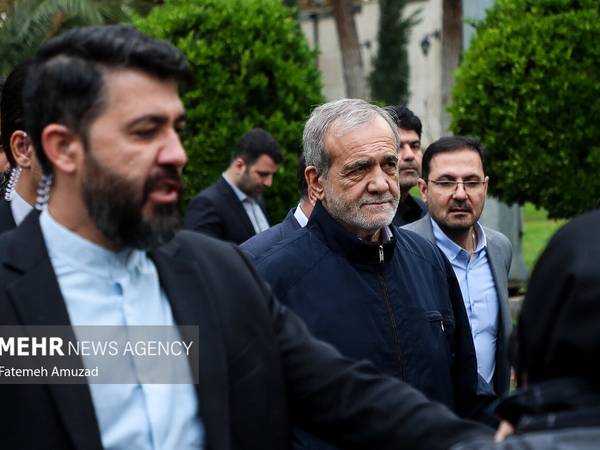Iran’s president has defended nationwide rolling blackouts for residential and commercial areas, warning that without these measures, the country faces significant risks in winter due to fuel shortages.
Speaking briefly to reporters on the sidelines of the weekly cabinet meeting on Wednesday, Masoud Pezeshkian said, “Since our [fuel] reserves are low and we may face problems in the winter, we have to adjust the reserves of power plants now to avoid future problems. If we don't think about this now, we might face a significant risk in the winter.”
After enduring summer blackouts from surging electricity demand, Iran now faces a natural gas shortage that could disrupt winter power supplies. With dwindling options, the administration launched a controversial plan to either impose blackouts or turn to mazut for power plants, a pollutant-heavy fuel source that risks further air pollution. However, officials have confirmed that there are also shortages of mazut and diesel.
Iran holds the world’s second-largest natural gas reserves, yet US sanctions have hindered its extraction efforts by restricting investments and access to advanced technology. As a result, Iran's gas production is gradually declining.
This week, electricity distribution companies in Tehran and other provinces started scheduled outages from 9 a.m. to 5 p.m. as part of a government strategy to conserve fuel.
According to electricity distribution company managers in various regions of Iran, during the specified hours, electricity will be cut off to all commercial and residential centers, including gas stations, banks, and government offices. The energy shortages have placed Iran’s industrial sector under strain too, as frequent blackouts disrupt production and increase costs.
Also on Wednesday, Hashem Oraei said that the energy crisis is even more severe this year, explaining that the country cannot even supply the needed mazut or diesel to power plants.
“We always give mazut and diesel to power plants during peak cold seasons instead of natural gas. This year, due to the ongoing shortages, we've reached a point where we can't even provide the necessary gas for power plants.”
Earlier in November, the government issued a directive to halt mazut burning at major plants in Arak, Karaj, and Isfahan, hoping to reduce health hazards in densely populated areas. Yet, with mazut still being used in other parts of the country, concerns persist about air quality and its impact on public health.
Oil Minister Mohsen Paknejad also said on Wednesday that the country has made plans to sustain its oil production and export and is ready for possible oil export restrictions from a Trump administration.
In 2018, then-US President Donald Trump pulled out of the 2015 nuclear deal (Joint Comprehensive Plan of Action) with Iran and re-imposed sanctions which hurt the country’s oil sector, with oil exports dropping to record lows and production to about 2 million barrels per day (bpd) during his presidency.
"Required measures have been taken. I will not go into detail but our colleagues within the oil sector have taken measures to deal with the restrictions that will occur and there is no reason to be concerned," Paknejad said.
According to the Organization of the Petroleum Exporting Countries, OPEC, of which Iran is a member, Iranian oil production has rebounded to around 3.2 million barrels per day in recent years.
Iranian oil exports have climbed this year to near multi-year highs of 1.7 million bpd despite US sanctions. Small Chinese refiners buy most of its supply. Beijing says it doesn't recognize unilateral US sanctions.
Iran has the world's second largest natural gas reserves but years of negligence to invest in the gas fields and Western sanctions have reduced production.
With around 80% of Iran’s electricity derived from thermal power plants reliant on gas, the administration faces mounting pressure to address what experts say is a systemic fuel shortages.
